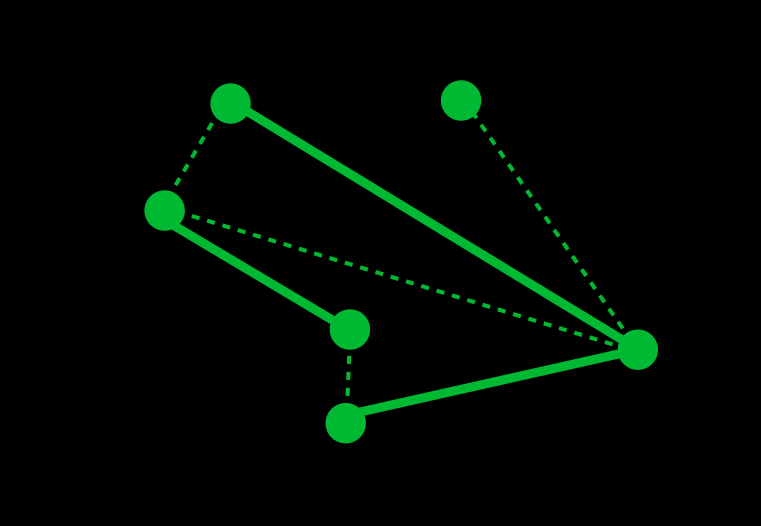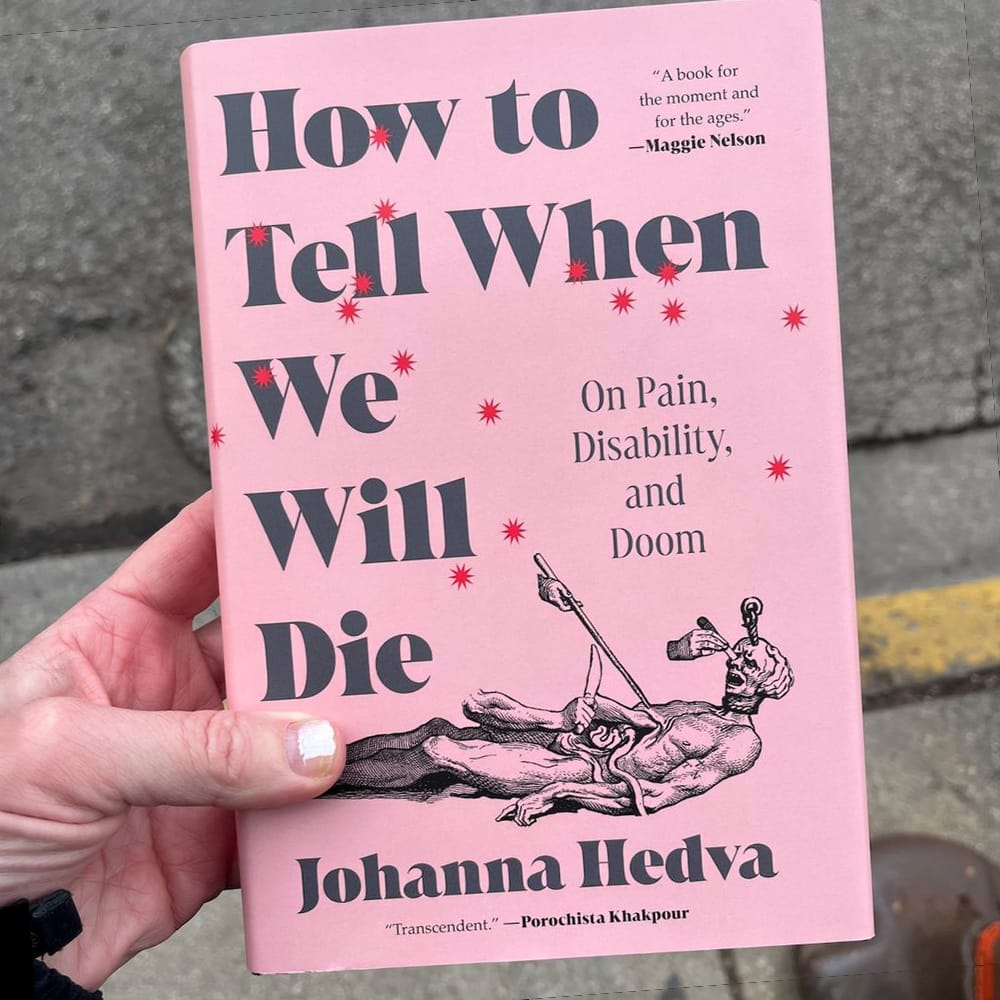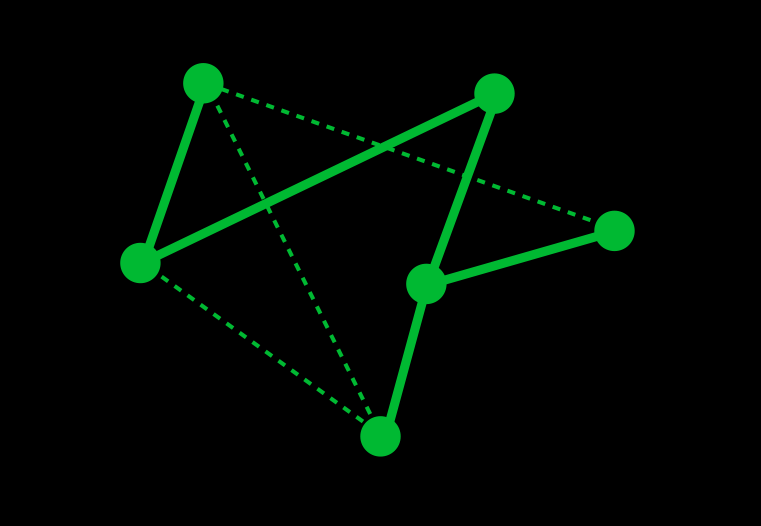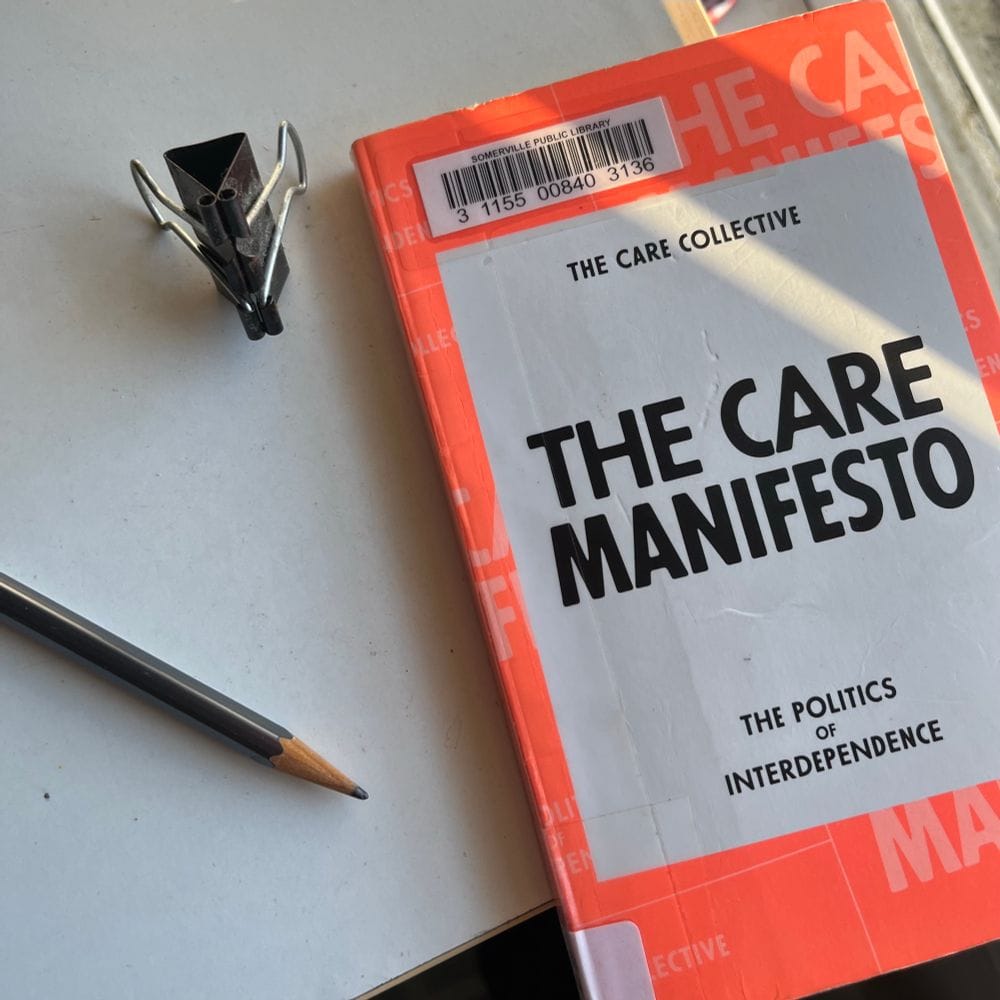Charles Bernstein's A POETICS
79 notes
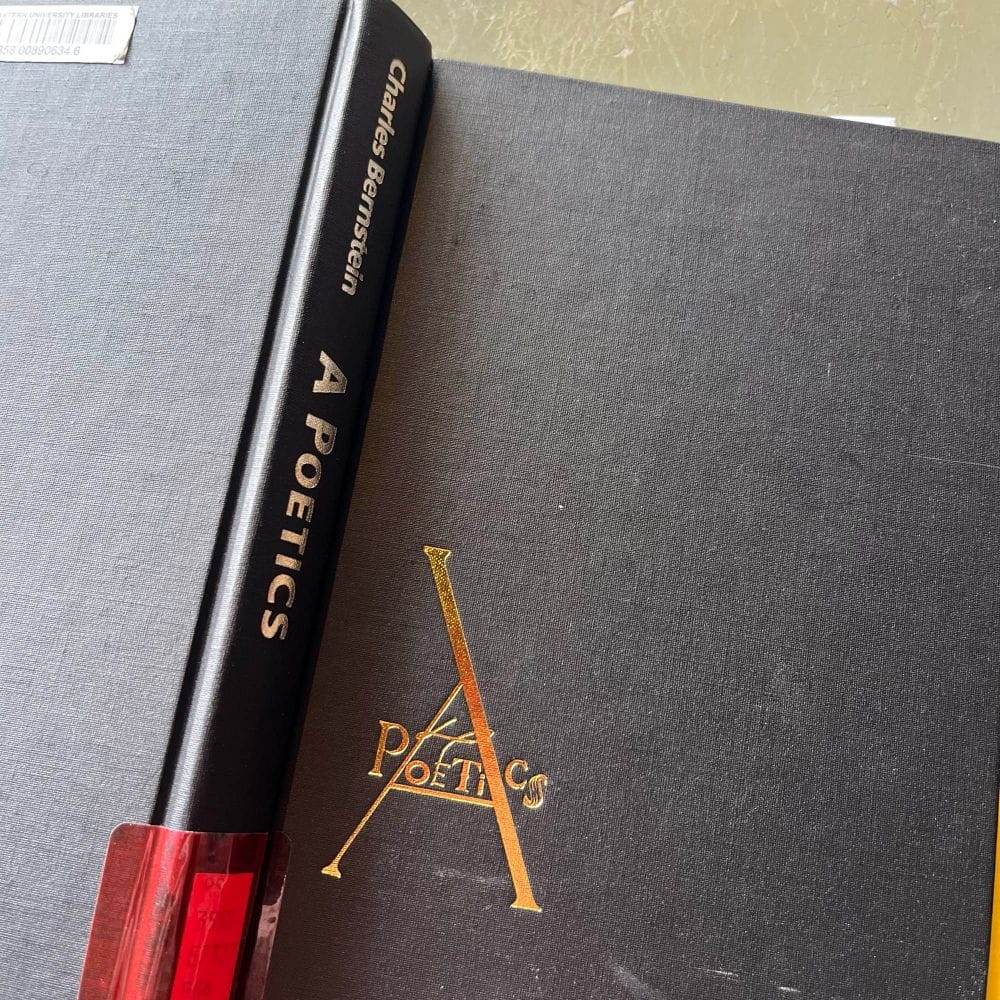
short bluesky review:
⌘ One of our greatest polemicist-poets comes out swinging in defense of a formally active poetry, a poetry of "particularity and peculiarity," of complexity and "communicative refractoriness." Published in 1992 but still brimming with urgency and vitality.
⌘ OK, some pieces in here seem dated — 1989's "Play It Again, Pac-Man" is a woefully shallow take on arcade games, lacking what could have been an insightful engagement with games as texts—but others remain all too apt. The piece on Pound's fascism deserves special note here.
Notes, oldest to newest.
1. Veronica Forrest-Thomson's "Poetic Artifice"
2. Bernstein on the "experiential" analysis of poetry
3. Total image-complex / total meaning complex
5. Poe and "absorptive fiction"
6. Bernstein on "the addressee"
7. "If only the plot would leave people alone"
12. Rae Armantrout's "Mainstream Marginality"
13. Harry Lanz on language's "transparency effect"
14. Sigrid Burckhardt on words and their meanings
15. Poems as recognitions, or not
17. "Song melos" vs "charm melos"
18. Folk speech, pagan spells, and "beyonsense" language
19. Anti-absorptive traditions within twentieth-century poetry
20. Basil Bunting's "Briggflats"
22. Peter Seaton
23. Steve McCaffery's "Panopticon"
24. The performance of nonabsorbable texts
25. Brecht's doubling of attention
31. Inside ideology, but with a different perspective
32. Consciousness, experience, and poetry
33. Piombino's "combinatorials"
34. Nick Piombino and poetry's functions
35. Nick Piombino's "Boundary of Blur"
36. Stein, Creeley, and attention
37. Grenier's "Phantom Anthems"
39. "A social value of poetry"
42. Bernstein on the visual arts
43. "43 Poets"
44. The language of America 1880-1900
45. Language and the "perceptual and conceptual unconscious"
46. Poetry and the changing nineteenth-century language base
47. "Anything shut in with you can sing"
48. The artificialness of language
49. American poetry in the 1880s and 1890s
50. Lafcadio Hearn
51. Henry James and the end of English
52. "Be as artificial as possible"
53. Bernstein's appreciation of William Morris
54. Pound, order, and polyvocality
58. Twentieth century language
59. Bernstein's "Content's Dream"
61. Bruce Andrews' "counterhegemonic project"
63. Are artists becoming philosophers?
64. On categories
65. A poem as a "network of details"
67. Comprehending the contemporary
69. Particularity and partiality in New American Poetry
70. The social dimension of language
71. The "psychic imperatives" of post-war poetry
73. Bernstein on political polling
74. Formal dynamics and their context
75. Erica Hunt's "The Politics of Poetic Form"
76. Against exposure
